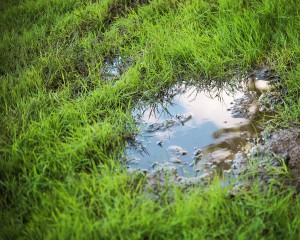Why You Should Test The pH Level Of Your Soil
The health of your soil is vital to the health of your lawn and plants, which is why it’s crucial that you consider testing the pH level of your soil. The soil pH level will indicate its alkalinity and acidity measurements. If soil is too acidic or too alkaline, it could affect your plants health, appearance and yield of fruit or vegetables this spring and summer.
It’s important to be aware that different types of environments will have naturally different pH levels. Depending on what you’d like to grow, you may need to amend the soil to meet a certain pH requirement. The pH scale starts at 0 and ends at 14. A reading from 0 to 7 shows a more acidic sample, while a reading from 7 to 14 is more alkaline. In most cases, grass can be grown in your yard at a level between 6.5 and 7. Requirements for vegetables can vary anywhere from 4.5 to 8.0, but they mainly do well between 5 and 6. Flowers have a pretty wide spectrum of pH tolerance as well. They tend to prefer less acidic dirt along with herbs, between 6 and 7.5.
You can assist your plants in different phases of life by measuring the soil’s pH level and altering it as needed. At Greenskeeper soil amendments and programs that will adjust the level of your soil to a more neutral state. For soil that is more acidic we use a lime soil amendment to increase the level of magnesium and calcium in the soil, that also aides in the absorption of certain nutrients. Some plants require more acidic soil like oak trees. For landscapes that are too alkaline the addition of ammonium sulfate or compost will increase the acidity of the soil.
Soil testing is easy, convenient and inexpensive. Knowing the pH level of your dirt and amending it as needed will help you to grow a beautiful lawn or garden. For soil testing and amendment services give us a call or click here for a free quote.

